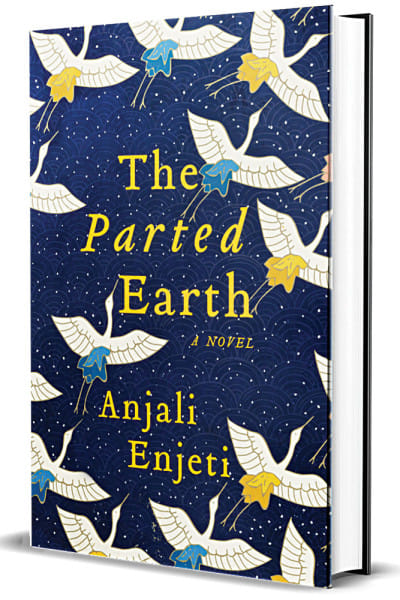Anjali Enjeti's 'The Parted Earth': Love in the time of Partition

Partition holds a strange place in our memories. For Bangladeshis, it may be far overshadowed by the more recent memory of the Liberation War, but across the Radcliffe line, it is recalled in families as a scar to forget, and in film as a reason to remember and to hate. And outside of the subcontinent, it is overshadowed by the precipitation of WWII, the start of the Cold War, and the behemoth propaganda machine of England. As a diasporic Bangladeshi, I constantly search for books that help explain my conflicting identities and the intergenerational trauma we carry in our blood. So when I find a book that talks specifically about Partition, how it can shape our identity as desis, and how the scars are carried across oceans and generations, it automatically gets fast tracked to the top of my To Read pile. Anjali Enjeti's The Parted Earth (Hub City Press, 2021) was the latest of these tales.
The The debut novel begins with Deepa, a 16-year-old, well-to-do Hindu girl living in Delhi in 1947, whose romance with the Muslim boy Amir is tragically ripped apart by the growing hatred of their communities. Decades later, a different family tragedy launches her granddaughter Shan, who has all but scrubbed the brown out of herself, into a quest for answers. She picks up the pieces of her shattered family history and seeks to reconcile her identity and story. From this summary, it promised to be a story in the vein of Khaled Hosseini's The Kite Runner or A Thousand Splendid Suns, but for a South Asian demographic.
Stories surrounding Partition do not lend themselves to a young adult demographic—to truly capture the horror of the time requires the room to evoke visceral emotions. To her credit, Enjeti makes a strong attempt at doing so within the limited medium, though I am unsure if the young adult tone was intended. Seeing Partition through Deepa's eyes is truly harrowing—as the anxiety and confusion builds around her, we too feel the walls close in. We understand her denial, her grief, and when her world goes up in flames, so do our hearts. All the while, Enjeti juggles this with the giddy rush of being a 16-year-old in love, the all-consuming nature of such romances, and how in such dark times, we will cling to any hope we can.
But these moments are only so vivid because they are situations that are near universally relatable, or deeply traumatic, and the rest of the book does not keep pace with the emotionally poignant beginning. Indeed, upon closer inspection, the beginning unravels too. The epicentre of it all is the rather amateur prose. It is beautiful, mind you, but often to its own detriment. Enjeti weaves descriptions with great care and detail, but without regard for their need in the moment or plot. It draws the reader in once, twice, but by the third time, one's eyes glaze over as they skip ahead in desperation for some development.
The cost of such overabundant descriptions are the characters themselves. Amidst all the flowery prose, their relationships are rushed and the characters are never allowed to stew and develop. When Enjeti is not describing, there is plot happening, exposition is being thrown into dialogue, emotions are dialled up to an 11, and characters are left as hollow shells carrying out tasks for the plot to progress. And with such a short book, it is a wonder as to why a few hundred more pages weren't allotted to letting the characters flesh themselves into more organic beings.
The role of Partition stories in literature cannot be overstated. While this novel can be very accessible to a wide audience, that is both to its strength and detriment: for fans of young adult romances, The Parted Earth may be a compelling foray into the time period, but for those seeking deeper characters, development, and understanding of intergenerational trauma, it might not deliver.
Yaameen Al-Muttaqi works with robots and writes stories of dragons, magic, friendship, and hope. Send him a raven at [email protected].

 For all latest news, follow The Daily Star's Google News channel.
For all latest news, follow The Daily Star's Google News channel. 



Comments